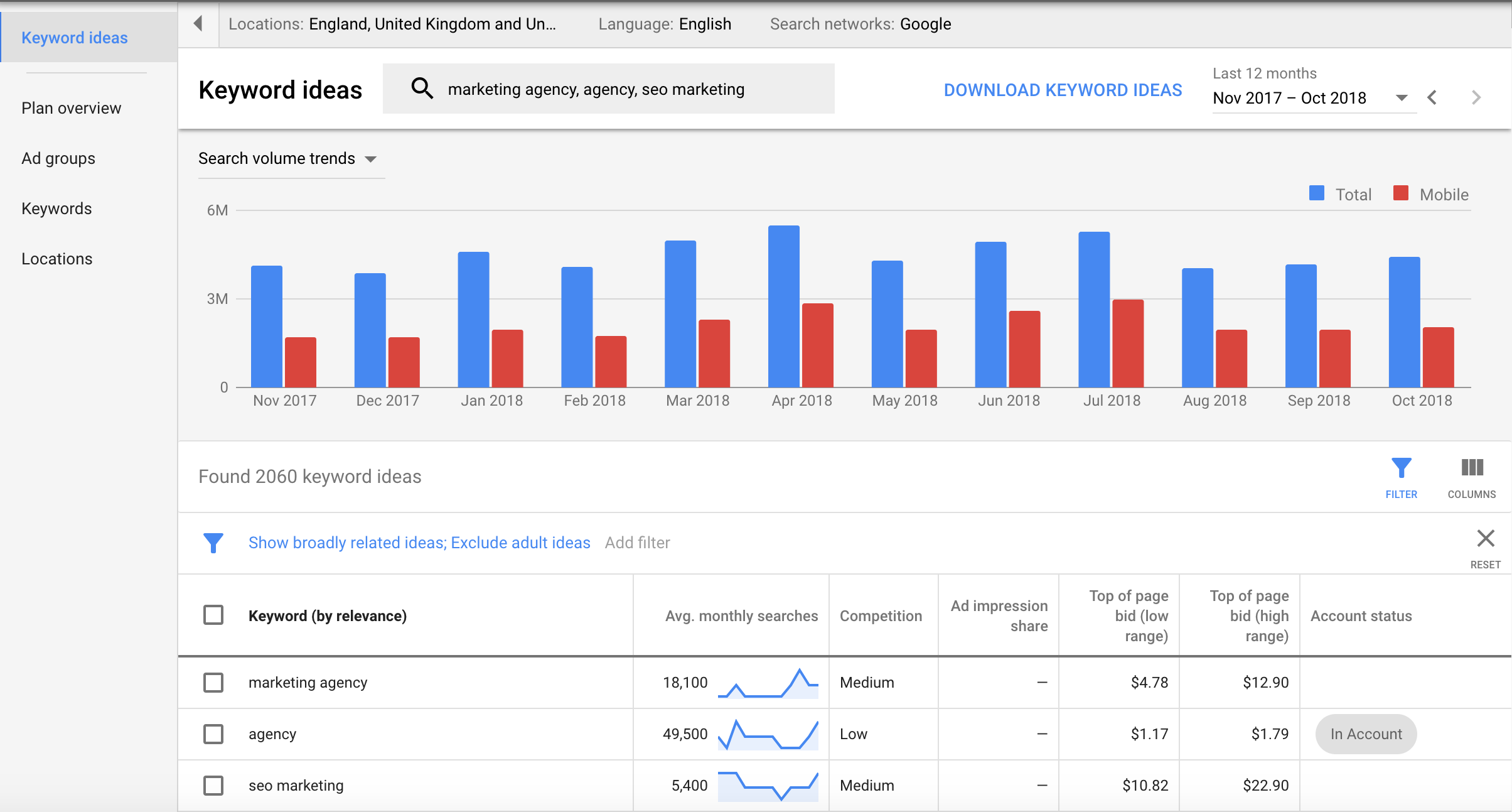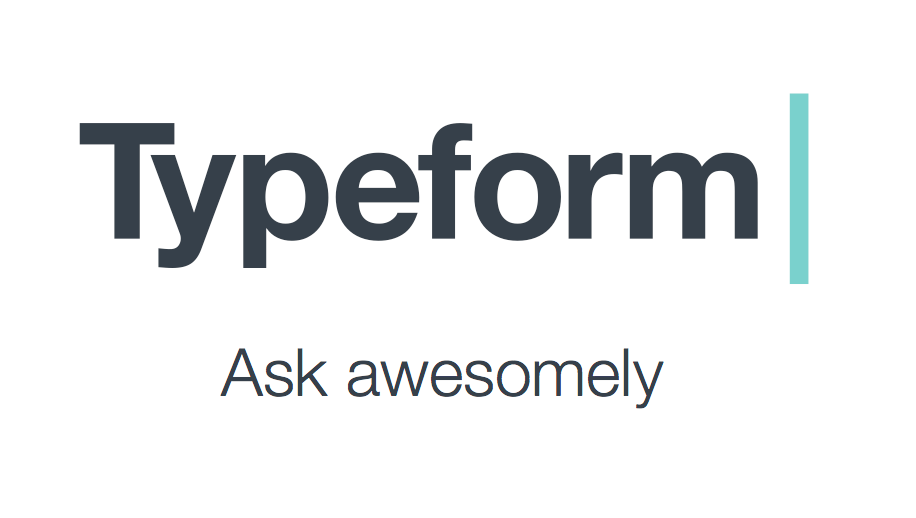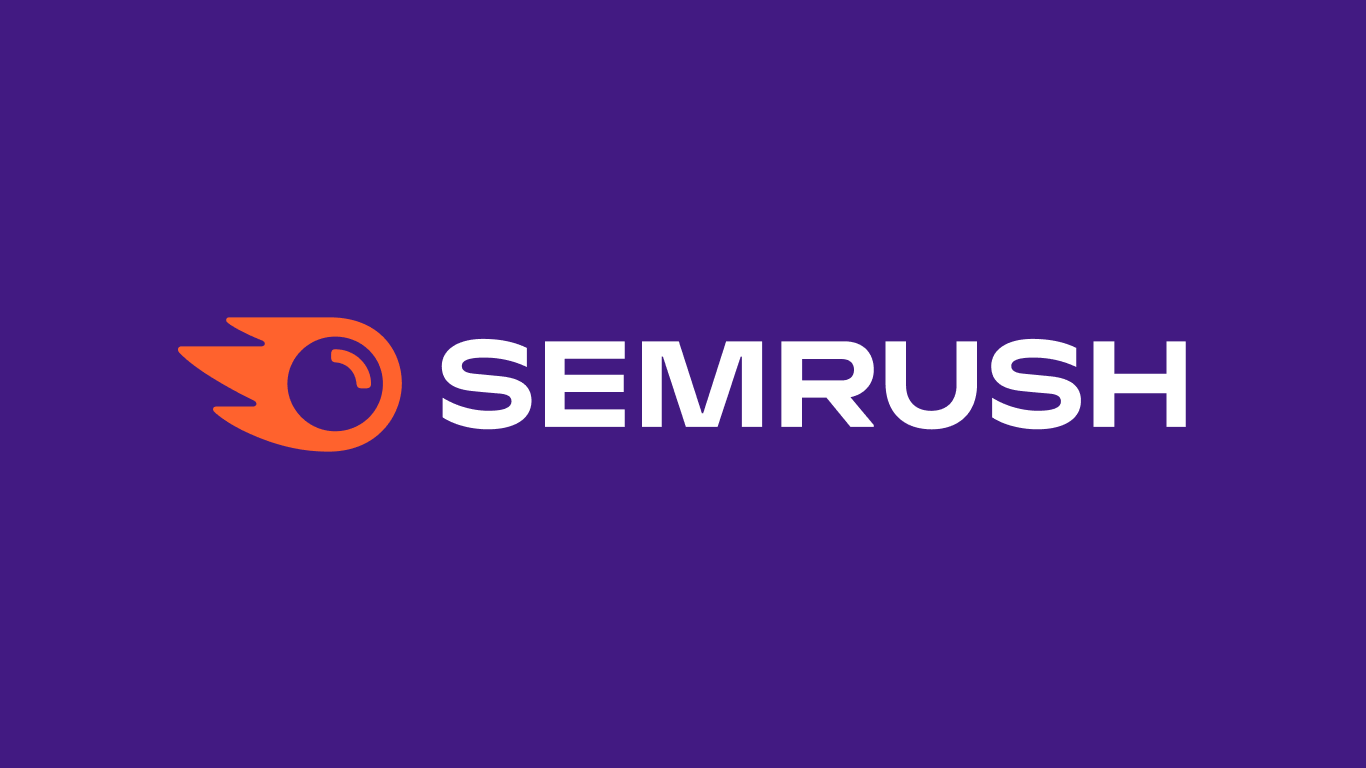Market and brand research tools are your secret weapon in the quest to understand and acquire new customers. You may believe you know everything there is to know about them. However, without data to back it up, your hunch could lead you astray.
Market research tools have always been central to the success of any business. According to a PwC study, companies that use the best tools for market research can 69% faster growth. They can also have 45% higher productivity than those that do not.
Knowing the ins and outs of your target market is more important than ever. This is especially in a world where competition seems to be endless. Have you been wondering what the best tools for market research are?
Are you interested in figuring out how to get new customers with the best tools for market research? This article provides a detailed answer to this. Let’s get started.
What is Market Research?
Market research is a systematic process of gathering and analyzing specific information. The information helps to provide answers to pertinent questions and evaluate the results. It focuses on learning everything there is to know about a specific subject.
You gather data in market research to subject it to testing. This would show you how your market structure looks and at what stage it currently is.
There are a variety of reasons for doing market research. However, the main reason is to help you make predictions about future probabilities. Learning about your customers, competitors, and industry is part of market research.
Don’t Fail to Read: Best Financial Planning Tools To Use In 2024
Why Use the Best Tools for Market Research?
There are a lot of reasons why you should the best tools for market research. They are-
- Market research is critical for starting and running a profitable business. It gives your company direction and keeps you in touch with what your customers want.
- Market research can help you determine the viability of a business or product idea. This includes whether you can expand into a new market or location. It also shows you the industry or economic influences.
- When you use the best tools for market research, your findings can also be for starting a new business.
- The best tools for market research would also create or revise your marketing strategy
- They would also ensure you can evaluate the success of your marketing strategy
You Can Also Check; Study In UK: Top 10 Universities To Study Advertising and Marketing in the UK
How to Use the Best Tools for Market Research?
To run a successful business, you must first educate yourself about your customers, competitors, and industry. Market research entails asking the right questions to the right people in the right way. This gives your company direction and keeps you in touch with what your customers want and how much they’re willing to pay for it.
When conducting market research, you can use the results in two ways:
- Create a new business and develop a marketing strategy.
- Determine the success of your current marketing strategy.
Market research entails asking the right questions to the right people in the right way.
To use the best tools for market research properly, you should:
See Also; Top 10 Careers In Chemistry That Are Marketable In 2024
#1. Specify your research goal.
The first step in conducting market research is to define your research objectives. What is the most important information you want your research to uncover? What information do you need about your customers or your market? You will be able to keep your research focused and effective if you define your research objectives.
You might want to decide whether to launch a new product or service, for example. The next step in your research would be to determine whether the market will accept your new product or service. It would also help you determine how much they are willing to pay for it.
See Also; Best Marketing Master Degree Programs in 2024 | Schools, Requirements, Cost
#2. Create your research questions.
Once you’ve determined your goal, create a list of research questions for your market, customers, and competitors. For example-
- What are the key demographics of your market (such as age and gender)?
- How will the introduction of a new business or product affect the market and customers?
- Is the economy in the region where you operate stably?
- What are your target customers like, and how do they act?
- Where can I find them?
- What is the ideal customer profile for your company?
- What is the typical competitor profile for your company?
- What are the main advantages of your competitors?
- What are your main competitors’ weaknesses?
Related Article: 15 Free Mobile App Development Tools For Beginners in 2024
#3. Compile your research
There are two types of market research, both of which rely on asking questions:
- Qualitative data is more in-depth and involves a smaller number of respondents.
- Quantitative data to draw specific conclusions, and a large number of respondents.
These best tools for market research would help you ensure that you compile your answers.
#4. Explain your findings
This step involves organizing your findings and interpreting them. What exactly have you discovered? When organizing and grouping your data, keep your research objectives in mind. Look for ways to improve your data organization – this will make it easier to reach a decision later on.
#5. Reach conclusions and make choices
When you have your findings, ask yourself, “What does this mean for my business?” What are your plans to address it? Any conclusions you reach should be consistent with your research objectives.
10 Best Tools for Market Research in 2024
Market research is a critical component of business success. In a world where brands are becoming increasingly competitive, knowing your target market inside and out is more important than ever. Fortunately, it is now easier than ever to obtain this from the comfort of your home. The 10 best tools for market research in 2024 are-
- 1. Qualaroo
- 2. Google Trends
- 3. SurveyMonkey
- 4. Statista
- 5. Google Keyword Tool
- 6. Tableau Software
- 7. Typeform
- 8. SEMrush
- 9. Ahref
- 10. Upwave (Formerly Survata)
#1. Qualaroo

Qualaroo is the best market research tool available. It is also one of the best online survey tools for conducting market research.
It provides users with an easy-to-use market research platform.
Qualaroo also assists you in developing user personas through advanced targeting. This allows you to better understand your users and track their goals and behavior patterns.
Features
- It is simple to set up and can begin collecting feedback immediately.
- Survey templates that have been professionally designed to ask the right questions.
- Detects your visitors in real-time and provides context for valuable responses.
- Users can quickly determine who and where the survey’s target demographics are.
- Can aid in the creation of detailed customer journey maps.
- Based on engagement, you can solicit product/website/app feedback from the audience.
- Supports branching logic for quickly navigating through redundant users.
- Integrates with well-known tools such as Hubspot, Zapier, and Slack.
Pros
- Net Promoter Score (NPS) surveys are ideal for measuring customer satisfaction and loyalty.
- Aids in gathering user experience (UX) feedback at every stage of the product design process.
- NudgesTM are unobtrusive pop-up surveys that are for testing prototype templates.
- Through the sentiment analysis engine, it is easier to analyze customer sentiments.
- You can also use open-ended survey results.
Cons
- Reports require more filters and export options.
- The survey dashboard lacks a bulk action button.
- Pricing begins at $ 0.0008 per tracked pageview per month, with a 15-day free trial.
#2. Google Trends

Google Trends is a free market research tool that displays data from all over the internet in the form of trend lines.
When you enter a specific term into Google Trends, it provides an accurate representation of how popular that term has been over time, as well as a score out of 100.
Features
- Displays the frequency of your searched term in Google. It makes it about the total search volume of the website over a given period.
- Adds location filters to your search to narrow it down.
- Displays the trend graphically for a better understanding of the outcome.
- Surveys are simple to complete on any device, including smartphones, tablets, and computers.
- Integrates with well-known tools like Zapier, Automate.io, and Integromat.
- It generates data and organizes it into organized Google Sheets. You can then present it immediately without any changes.
Pros
- A useful tool for gathering keyword-related and geographic information about users.
- Discover any search spikes caused by special events in real-time.
Cons
- Shows sometimes irrelevant results for a searched term.
- Since it only displays relative numbers, it requires a comparison analysis.
Pricing: There is no cost to use this tool for market research.
#3. SurveyMonkey

SurveyMonkey is one of the best tools for market research. It offers new market research techniques for customers to express themselves.
They have combined an enterprise-grade platform with a suite of specialized market research.
It also has customer experience solutions. This ensures that organizations of all sizes can benefit from market research.
Features
- Professionally designed question bank for asking accurate questions.
- Personalized survey techniques such as skip logic, branching logic, and so on.
- Has an AI-powered analysis tool to ensure expert feedback
- Test creative ideas by asking the right questions to the right people.
- Ensures the accuracy of data collected from over 144 million users worldwide.
- With the flexible engagement model, you can get assistance from market research experts and dedicated account managers.
- The ability to track the market dynamics of a specific product category over time.
Pros
- You can create recurring surveys to easily track sentiment over time.
- Improve response rates by embedding survey questions in emails.
- The updated benchmark data provides accurate context.
Cons
- To improve data presentation, improvement of the analytical dashboard is necessary
- When designing surveys, there are occasionally minor glitches.
Pricing begins at $25 per user/month.
Related Article: 10 Best Google Project Management Free Tools In 2024
#4. Statista

Statista is one of the best market research tools for data visualization and market research.
Basically, it is one of the best tools for market research. It collects data from reputable reports available on the internet. It then converts it into a format that researchers can understand and digest.
Features
- It can find specific data about your industry and generate a statistical report that is much easier to understand.
- It includes the ability to filter content by type.
- There are hundreds of metrics to choose from, as well as the ability to customize visualizations.
- Forecasts and survey reports are also available.
- The ability to analyze markets in over 150 countries.
- Presents global stories and statistics in a visually appealing format.
- Capability to conduct global consumer surveys to determine what motivates consumers.
- By simply copying the HTML code, it is possible to integrate it with other marketing tools.
Pros
- Excellent tool for displaying Key Performance Indicators (KPIs). This is for understanding the consumer market outlook.
- Aids in the research and gathering of information about companies. This includes their headquarters, number of employees, and revenue performance.
Cons
- Finding relevant data for long-tail search terms can be difficult.
Pricing begins at $39 per month.
#5. Google Keyword Tool

Google keyword tool is by far one of the best tools for market research.
It is a sophisticated market research and analysis tool. It provides insight into customer behavior when searching online.
The Google Keyword Tool provides useful insights into the queries that your target audience searches for on Google.
It serves as an accurate product research tool, revealing what customers are looking for. To use it, you must first sign up for a free Google Adwords account.
Features
- Displays the number of keyword searches.
- Allows you to filter keyword searches by location and language.
- Allows you to filter searches based on the device used to search.
- Assists marketers in developing content and marketing strategies.
- Provides users with insights into current marketing trends.
- Extend your long-tail efforts by locating additional important keywords in the same domain.
- Uses Google API to integrate with other tools.
Pros
- Displays the relationship between various keywords to assist you in finding targeted related keywords.
- Excellent tool for determining the competitiveness of keywords.
Cons
- This tool provides fewer keyword suggestions than similar tools.
- It requires more keyword filters in the dashboard.
Pricing: Use is free.
Visit Google Keyword Tool Here
#6. Tableau Software

Tableau is a data visualization business intelligence suite that requires no programming knowledge. It is one of the best tools for market research.
Tableau employs analytics, visualization, and business intelligence. It uses this to present data in a visually appealing manner for improved comprehension.
It aims to change how we perceive and use data to make decisions. Tableau’s highly sophisticated market research tools enable its users to make the most of their data.
Features
- Allows you to visualize data on anything.
- Data can be easily extracted from PDFs, Excel, text, Python, SAS, and many other formats.
- Tableau dashboard provides a comprehensive and all-encompassing view of your data.
- Allows the marketing team to directly access data in various formats.
- Creates visual representations of market research data. It uses this to generate actions and make quick decisions.
- Integrates natively with other market research tools such as Qualtrics and Salesforce.
Pros
- Options for flexible team collaboration and data sharing
- It is simple to connect to live data sources to stay up to date.
- Provides data heat maps to provide a general sense of the market’s emerging patterns.
Cons
- For some businesses, this can be an expensive tool.
- You may require assistance from the IT department to set up the tool.
Pricing: $70 per user per month.
#7. Typeform

Typeform is yet another market research software and online survey tool that enables you to conduct market research surveys.
It is one of the best tools for market research. You can receive direct responses from your target audience.
It includes a built-in photo and video libraries, as well as a variety of design themes to choose from.
Typeform’s primary goal is to create appealing forms that attract more responses. It also ensures it provides better insights.
Features
- Displays one form field at a time to viewers.
- Simple to use and mobile device optimized.
- Allows you to create a variety of question types.
- With a variety of customization options, you can make the form uniquely yours.
- Integrates with other tools such as Google Sheets, Salesforce, and Slack.
- Users can create forms in minutes thanks to the drag and drop feature.
- Multiple-choice, rating, opinion scale, free-form text, and other question types are available.
Pros
- Creating surveys that are conversational and approachable.
- Customer demographics are being gathered to better understand their behavior patterns.
- Developing a positioning strategy based on survey results.
Cons
- It requires more flexibility and customization options for survey design options.
- More filters in the reporting dashboard would be beneficial.
Pricing begins at $25 per month.
Related Article: 15 Productive Tools for Remote Workers in 2024
#8. SEMrush

SEMrush is yet another powerful market research software tool that marketers use to increase conversion rates.
Its portfolio includes over 40 tools you can use to attract more visitors and increase conversions.
This tool is primarily intended to improve online visibility and uncover marketing insights.
It provides services such as SEO, PPC, SMM, Keyword Research, and Competitive Research. Also, it provides PR, Content Marketing, Marketing Insights, and analytical tools for market research.
Features
- Provides keyword research, on-page SEO, and local SEO tools.
- Simple monitoring and management of organic rankings.
- It provides content marketing, creation, distribution, and optimization tools.
- It is the most effective tool for market analysis.
- Allows you to investigate and analyze the demographics of market competitors.
- Determines how to generate your competitors’ traffic and estimates your market share.
- Compatible with popular Google and social networking apps.
Pros
- The technical audit report includes detailed recommendations for site optimization.
- One of the best enterprise-level tools available.
- Provides a plethora of keyword suggestion segmentation options to help you find the right keywords.
Cons
- Training manuals can be difficult to navigate. It can be difficult to locate what you are looking for.
- The dashboard for backlink suggestions need improvement. It occasionally misses a large number of backlinks.
Pricing begins at $119.95 per month.
#9. Ahrefs

Ahref is also the best tool for market research because it provides a complete suite of conversion rate optimization tools.
It is a very diverse piece of software with a ton of functionality that can easily turn anyone into an SEO expert.
It is a powerful tool for backlinks, SEO analysis, and long-term SEO health management.
Features
- It ranks keywords according to their difficulty and traffic potential.
- Conduct site audits to identify weak links and improve conversion rates.
- It carries out keyword research for Google, YouTube, and Amazon.
- Discovers content that performs well on a specific topic.
- There are numerous metrics to use to evaluate the data.
- Using the Ahrefs API, it integrates with tools such as Tray.io and Rank Ranger.
Pros
- Offers insight into competitors’ organic search and backlinking profiles across multiple websites.
- It aids in the discovery of the most optimized and well-performing content.
- It generates new ideas and analyzes competitors’ content.
Cons
- With a slight learning curve, Coes. To provide quick access, product menus should include inline tooltips.
- PPC features require some tweaking.
Pricing begins at $83/month when billed annually.
#10. Upwave (Formerly Survata)

Upwave, formerly Survata, is one of the best tools for market research. This platform is for tracking the effectiveness of your brand advertising campaigns.
You can use the built-in dashboard to track and optimize each campaign across multiple channels to improve ROI.
Upwave data features in publications such as Forbes, USA Today, CBS News, and The New York Times.
Features
- Monitor and optimize brand advertising to raise brand awareness.
- To run timely optimization, and receive real-time updates on outperforming aspects of each campaign.
- Receive email notifications to receive updated reports in your inbox.
- Each campaign includes automated tracking of various demographic and behavioral profiles.
- You can see how well each campaign reaches its target audience through various channels.
- Create customer dashboards to track the success of your campaigns.
- You can use Upwave’s AI-powered customer forecast feature to forecast brand lift.
- It is also used for customer acquisition for your campaigns.
Pros
- Monitor market penetration or the percentage of a campaign’s target audience reached.
- You can estimate customer acquisition numbers to evaluate the efficacy of your brand marketing campaigns and make changes.
Cons
- It requires more filters to include other behavioral traits in the dashboards.
- For new users, the dashboard user interface can be overwhelming.
Pricing: Please contact them for a quote.
Related Article: 15 Free Team Collaboration Tools in 2024 | Realtime Access
FAQs – Best Tools for Market Research
It is critical to select data collection tools because it conducts research in a variety of ways and for a variety of purposes. The goal of market research is to collect high-quality evidence that you can analyze to produce convincing and credible answers to the questions posed.
Market research tools are those that allow you to reach a large audience. It does this while also collecting relevant, accurate data via a simple process, such as a survey.
Making sound commercial decisions, obtaining investment funding, identifying new business opportunities, and preventing business failures are the primary goals of market research.
Most revolve around a core set of fundamental tools. Interviews focus group discussions, videos, surveys, questionnaires, and case studies are examples. Direct measurement, secondary data review, and informal project/program management processes can all generate data.
It necessitates a thorough understanding and potential solution. Research on existing theories and concepts aids in determining their scope and applications. It is a wellspring of knowledge that provides solutions to problems. Many government policies are on on research.
Market research allows you to qualify your decisions and estimate their impact before making them. This enables small business owners to pursue new markets and test new ideas. It also enables them to foster innovation within their organizations with greater confidence.
Conclusion
These best tools for market research will significantly improve your daily toolkit. There are numerous tools available to help you find metrics, tre,nds, and conversations. If you want to reach a large number of potential customers, you must know where to look.
Market research entails determining who your potential customers are. They also ensure you know how to reach them, and what they require from you.
The best tools for market research listed above are your best bet to improving your market.
References
- latana.com– 10 best market research tools
- blog.hubspot.com– Market research tools resources.
- business.vic.gov.au– Marketing research
- askattest.com– Market research tools
- knowledgehub– Why market research is important
- smallbusiness.chron.com– Tools used for market research





